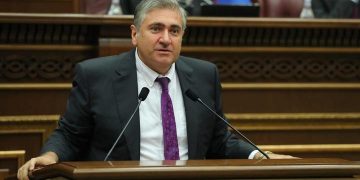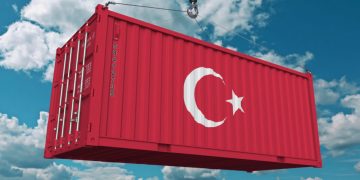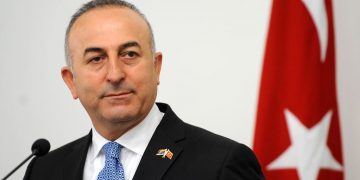On July 30, at the Margara-Alijan border crossing point, after a two-year break, the 5th meeting of the delegations led by the Deputy Speaker of the National Assembly of Armenia Ruben Rubinyan and the special representative of the Turkish side for the normalization of Armenian-Turkish relations, Ambassador Serdar Kiliç, took place.
Fact Investigation Platform presents how and when the meetings aimed at the normalization of Armenian-Turkish relations began and what results the parties have achieved so far.
The so-called Armenian-Turkish dialogue became active after the 44-day war in 2020. On December 13, 2021, the former Turkish Foreign Minister Mevlüt Çavuşoğlu spoke for the first time about the steps towards the normalization of Armenia-Turkey relations. In particular, he stated in the Turkish Parliament that Ankara and Yerevan will mutually designate special representatives.
Çavuşoğlu emphasized that he consulted with Azerbaijan on this issue and they will continue to move together toward the normalization process.
The next day, Yerevan’s response was issued. Armenian MFA spokesperson Vahan Hunanyan emphasized that Armenia is ready for the process aimed at normalizing relations with Türkiye without preconditions, which is also reflected in the program of the Armenian government.
Deputy Speaker of the National Assembly Ruben Rubinyan was designated as a special representative from the Armenian side, and a diplomat, the former Ambassador of Türkiye to the USA, Serdar Kiliç, from the Turkish side.
Back in November 2021, official Moscow expressed its willingness to mediate the normalization of Armenian-Turkish relations, and the first meeting of special representatives took place in Moscow on January 14, 2022.
According to the statements issued by the Foreign Ministries of the two countries, during the first meeting, the special representatives “exchanged their initial thoughts” regarding the process of normalization through the Armenian-Turkish dialogue and agreed to continue negotiations aimed at full normalization without preconditions.
Shortly after this meeting, on February 2, Fly One Armenia resumed direct Yerevan-Istanbul flights. Pegasus was the operator of flights from the Turkish side.
Direct flights between the two countries stopped back in 2019. Atlas Global company, due to financial issues, stopped flights to Armenia. The restoration of direct flights remains, perhaps, the most tangible result achieved so far as a result of the special representatives’ meetings.
The second meeting of the delegations headed by Rubinyan and Kiliç took place on February 24, 2022, in Vienna. At the meeting, “the special representatives reaffirmed that the ultimate goal of the negotiations is the full normalization between Armenia and Türkiye.” They also expressed their willingness to continue the process without preconditions.
The 3rd and 4th meetings of the Armenian and Turkish envoys also took place in Vienna on May 2 and July 1, 2022, respectively. According to the statement issued by the Ministry of Foreign Affairs on July 1, the parties “agreed to provide an opportunity to cross the Armenia-Turkey land border in the shortest possible time for citizens of third countries visiting Armenia and Türkiye, respectively, and decided to launch the required processes to that end.”
In the following two years, no meetings took place between the envoys.
In November, 2023, after 6 months of construction work, the Armenian side completed the overhaul of the Margara checkpoint on the Armenian-Turkish border, hoping to bring practicality to the normalization of bilateral relations.
On July 26, 2024, days before the 5th meeting, Prime Minister Pashinyan toured the Margara checkpoint, during which he was informed about the works carried out within the framework of the project worth AMD 1 billion.
Although Serdar Kiliç proposed holding the next meeting with the Armenian side in Yerevan within the framework of the International Diplomatic Forum 2024 in Antalya on the topic of “Peace, Development and Connectivity in the South Caucasus,” the 5th meeting took place at the overhauled checkpoint.
At the July 30 meeting, the parties “agreed to assess the technical needs in line with regional developments, which will enable the operation of the Akhurik/Akyaka railway border checkpoint, as well as to mutually facilitate visa procedures for diplomatic/official passport holders.”
It is noteworthy that the railway was never mentioned in the reports on the negotiations between representatives of Armenia and Türkiye. The checkpoint of the Gyumri-Kars railway, which was the checkpoint between Armenia and Türkiye until Türkiye closed the Armenian-Turkish border in 1993, is located in Akhurik settlement of Shirak region.
Thus, based on the official statements about the results of the 5th Rubinyan- Kiliç meeting, it is yet unknown when and under what conditions the Armenian-Turkish border will be opened, and in general, whether it will ever be opened or not.
Arpine Hovhannisyan

 FACTOMETER
FACTOMETER








